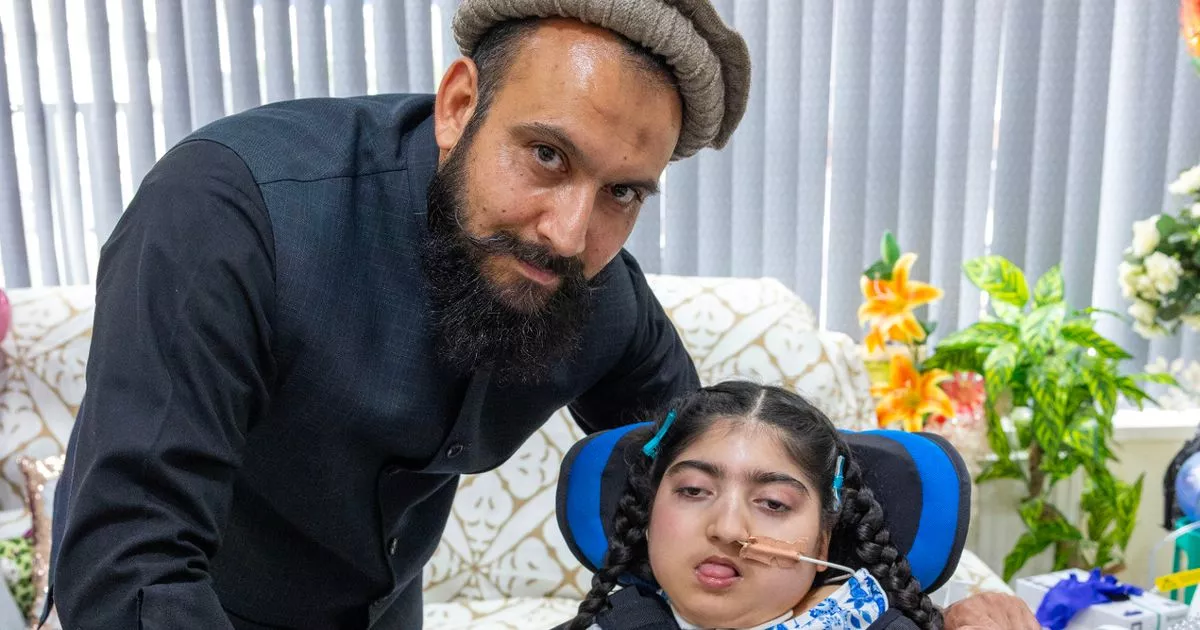Doctors wanted to move Fatima Ali, 11, on to palliative care within days before her parents Gohar and Rabia launched a historic legal fight to save her life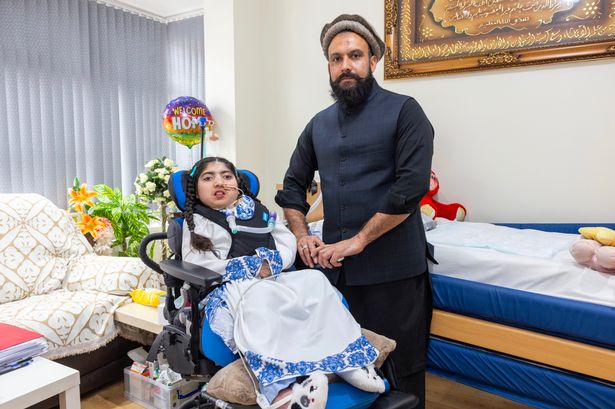 Fatima Ali, 11, and her dad Gohar (Image: Rowan Griffiths / Daily Mirror)
Fatima Ali, 11, and her dad Gohar (Image: Rowan Griffiths / Daily Mirror)
When doctors told Gohar Ali they wanted to stop treating his daughter and move her on to palliative care, he knew he would fight for her life.
Fatima, 11, has a serious medical condition that had left her on a ventilator in hospital. But there came a point where doctors felt it was not in the little girl’s best interest to continue.
They wanted to stop the treatment and remove ventilation, which would mean Fatima would die, possibly within days. But Gohar and his wife Rabia Begum refused to abandon hope. They took on the hospital trust in court and won – and their little girl is now living back at home.
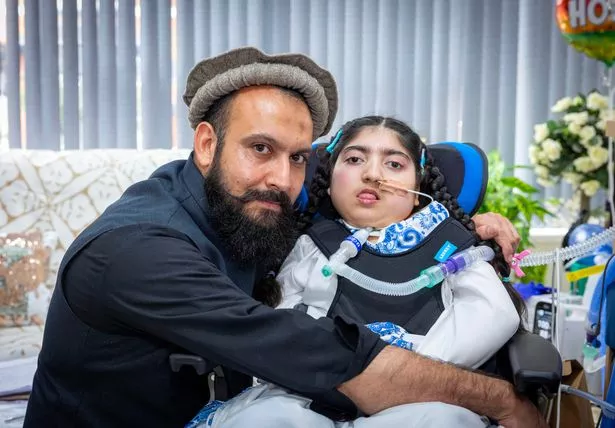 Dad Gohar with Fatima, who is now back at their home in Birmingham(Image: Rowan Griffiths / Daily Mirror)
Dad Gohar with Fatima, who is now back at their home in Birmingham(Image: Rowan Griffiths / Daily Mirror)
Fighting back tears, Gohar says: “I was always going to fight for Fatima, I was never going to give up. I took inspiration from cricketer Imran Khan, who said, ‘You only lose when you give up. If you do not give up, you will win from the most incredible positions’.”
The couple engaged specialist lawyers to fight the hospital trust. Due to their strong Muslim faith they believed that the sanctity of life should be preserved.
They also felt strongly that their daughter would in fact benefit from being treated and that she could be allowed home. After all, until 2023 Fatima had been living at home in Yardley, Birmingham, with her brothers and sisters and was looked after by her parents with help and support from her extended family.
From 2016 to 2023 the seriousness of the little girl’s condition meant she had to be taken to the paediatric intensive care unit several times, and in June 2023 she was admitted to Birmingham Children’s Hospital. The next month it was suggested she be “one-way weaned” off the ventilator.
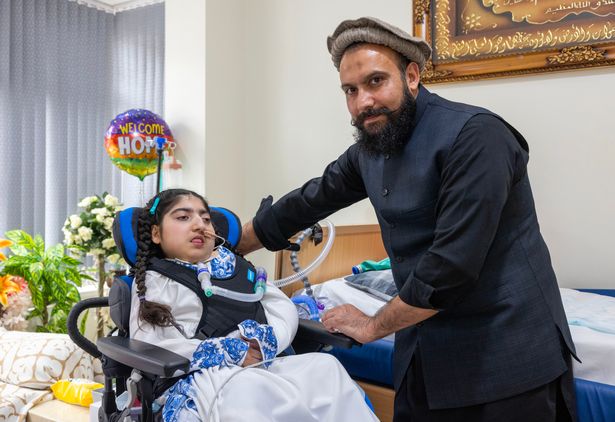 Dad Gohar, 45, spent every hour he could by his daughter Fatima’s hospital bedside(Image: Rowan Griffiths / Daily Mirror)
Dad Gohar, 45, spent every hour he could by his daughter Fatima’s hospital bedside(Image: Rowan Griffiths / Daily Mirror)
Gohar, who works as a taxi driver, recalls: “It was particularly hard for her siblings, who really missed Fatima and always visited her in hospital after school. I would spend every hour I could there, sleeping in a chair.
“I had to make sure I always knew what was happening to her and I would question everything. The nursing staff were so great with her.
“We really appreciated what they did for her but at the same time we had to be there to represent Fatima and make sure she was getting the best treatment possible.”
When Birmingham Women’s and Children’s NHS Foundation Trust made an application to stop the life-sustaining treatment, Gohar and Rabia took them on. Gohar says: “It was exhausting, but that moment when we knew we could bring her home was glorious.
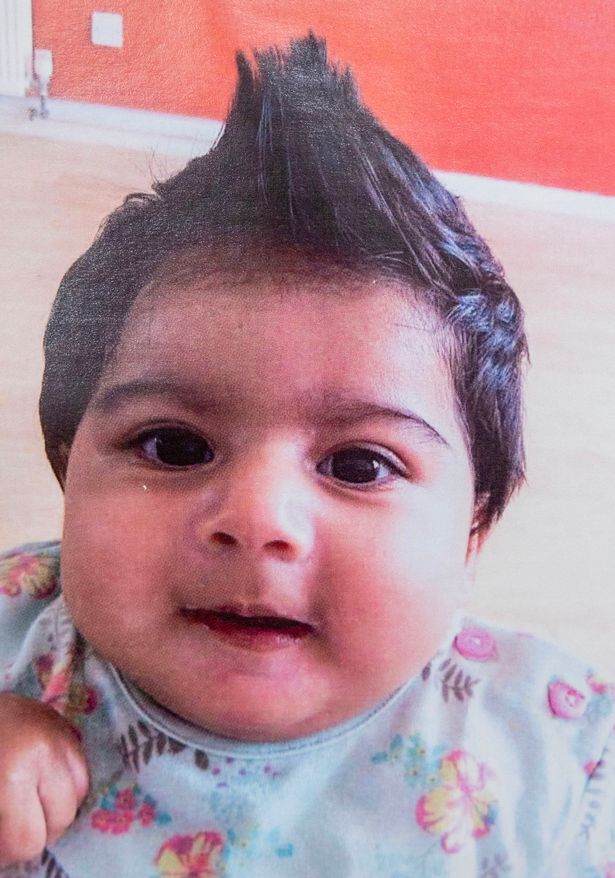 Fatima was born with the genetic, neurological condition WWOX Syndrome(Image: Rowan Griffiths / Daily Mirror)
Fatima was born with the genetic, neurological condition WWOX Syndrome(Image: Rowan Griffiths / Daily Mirror)
“I had left the hospital that day and I was beginning to think maybe we would not win this. And then the call came when I was almost back home. What I have learned and the message I would give any other parent out there is to keep the faith, remain strong and you can come through all the pain. We remained strong.
“We knew we were a small fish up against a big shark but that did not hold us back – we knew what we had to do for Fatima.”
The family division of the High Court agreed with Gohar and Rabia. It ruled she should undergo a tracheostomy – a surgical procedure that creates an artificial airway – with a view to long-term ventilation at home.
She had the operation this January, was discharged in September and is now settling back in to life at home. The treatment has given her the possibility of more years with her family.”
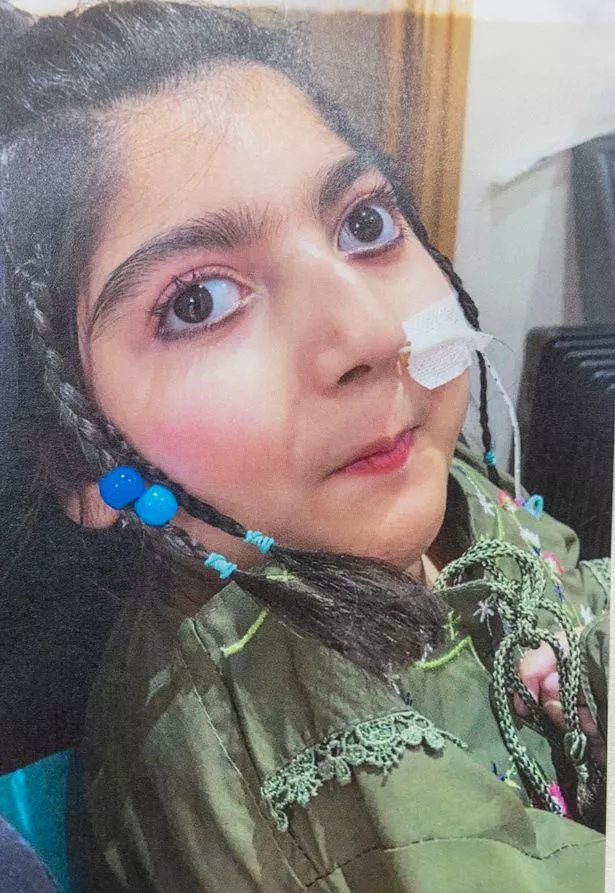 Fatima, who has a number of needs, pictured during her time in hospital(Image: Rowan Griffiths / Daily Mirror)
Fatima, who has a number of needs, pictured during her time in hospital(Image: Rowan Griffiths / Daily Mirror)
Gohar says: “We are so happy to have Fatima back at home. It’s been really hard these past few years but we know that she will continue fighting to survive.
“Her siblings are looking forward to more happy times with Fatima and we are grateful to the court for hearing our side of the story and allowing us to spend more time with our precious young girl. One thing we can have now she is back is some stability.
“And soon we will have a party with all the family and the kids from the neighbourhood to properly welcome her home.”
Emma Bergin, specialist solicitor at Irwin Mitchell, who represented Fatima’s parents, said: “This is a unique and interesting case about a healthcare decision with the most serious of consequences.
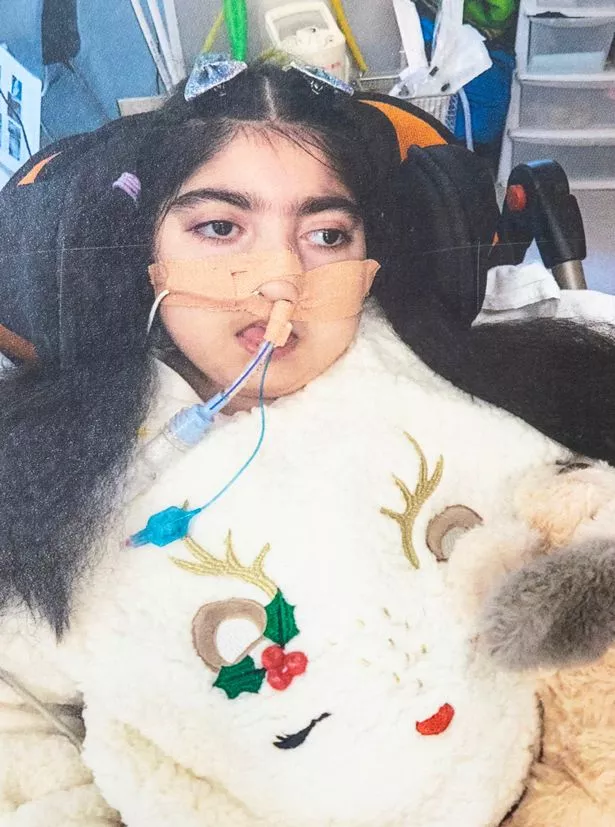 Fatima’s family are now looking forward to the future(Image: Rowan Griffiths / Daily Mirror)
Fatima’s family are now looking forward to the future(Image: Rowan Griffiths / Daily Mirror)
“The court heard lots of medical evidence as well as hearing evidence from the family about Fatima’s life and religious beliefs. In particular the court heard evidence that her faith was likely to be strong and would align with her parents, who believed in the sanctity of life and that her treatment should be prolonged as much as humanely possible.
“The judge also considered whether Fatima would derive pleasure from her life and acknowledged that while she can’t run and play with friends like other children, her family and in particular the attention of her brothers and sisters were sources of pleasure to her.
“We are just so happy for the family that we could play our part in bringing Fatima back home and we hope they get to spend some quality time together as a family.”
Dr Satish Rao, the chief medical officer at Birmingham Women’s and Children’s NHS Foundation Trust, said: “We recognise this has been an extremely difficult time for the family. Clinical recommendations and decisions are always made in a patient’s best interest.
“We fully respect the court’s decision and have provided care and support to the patient and her family to enable her discharge home for ongoing care.”

